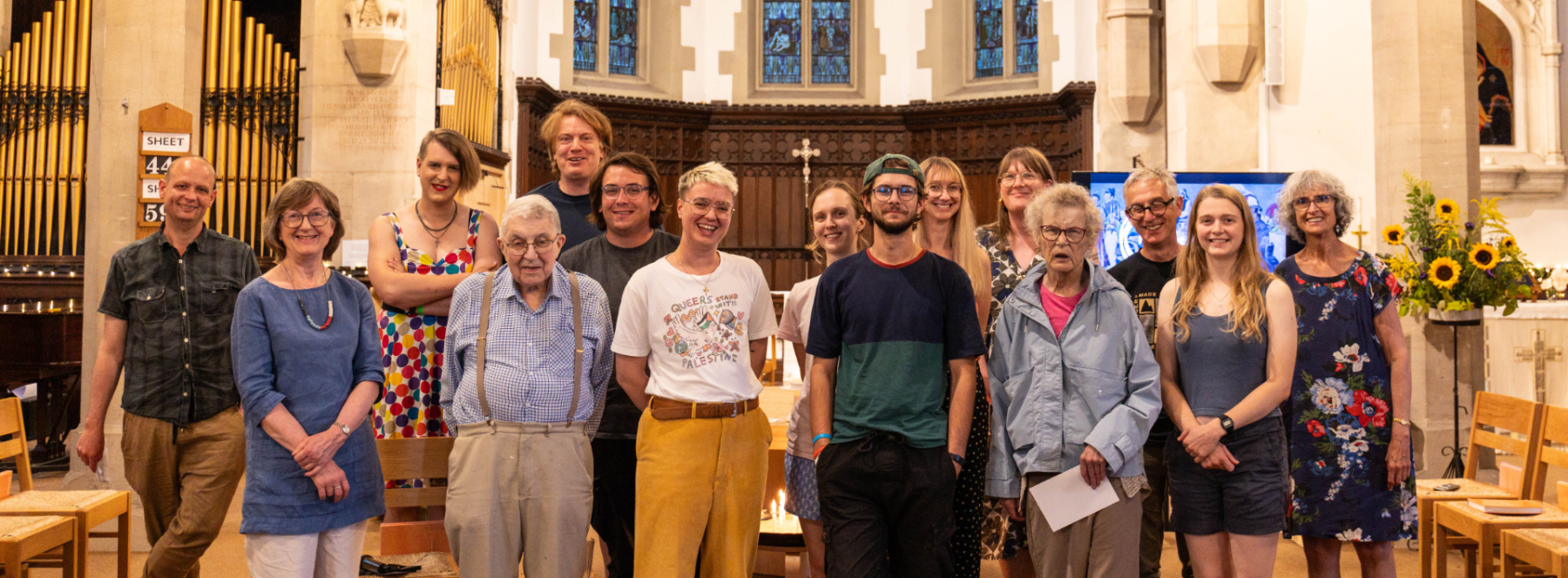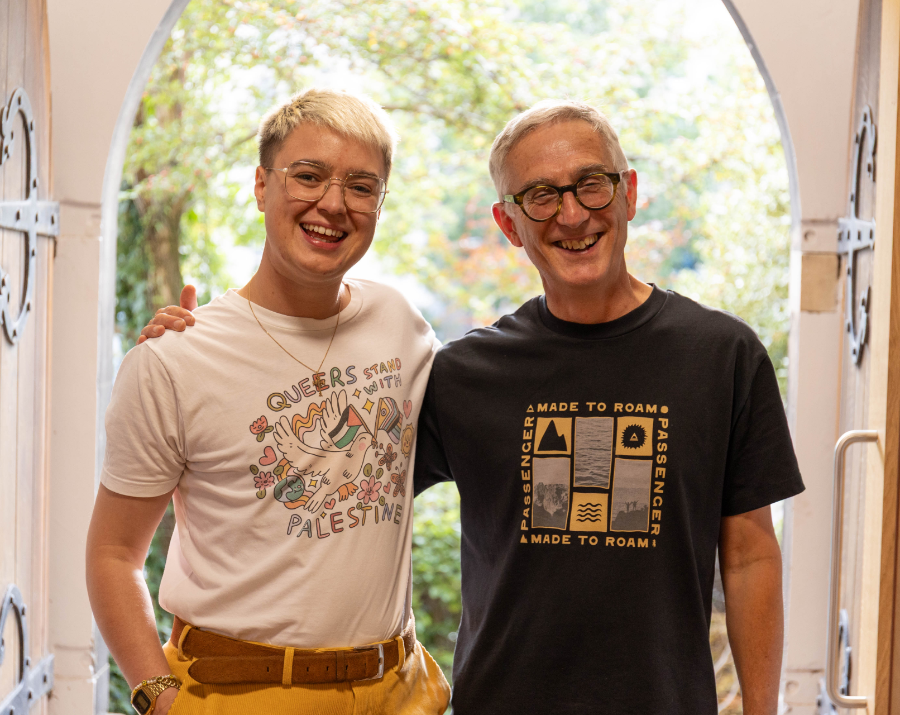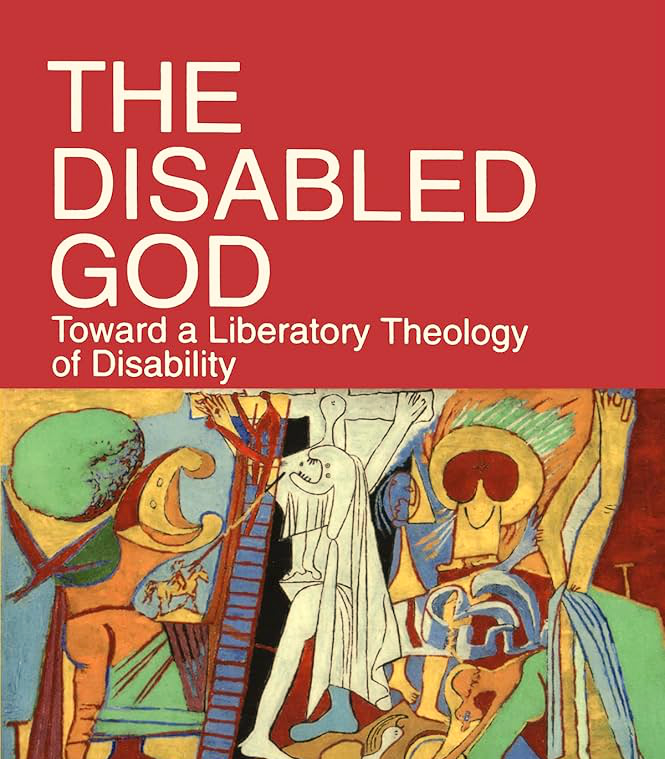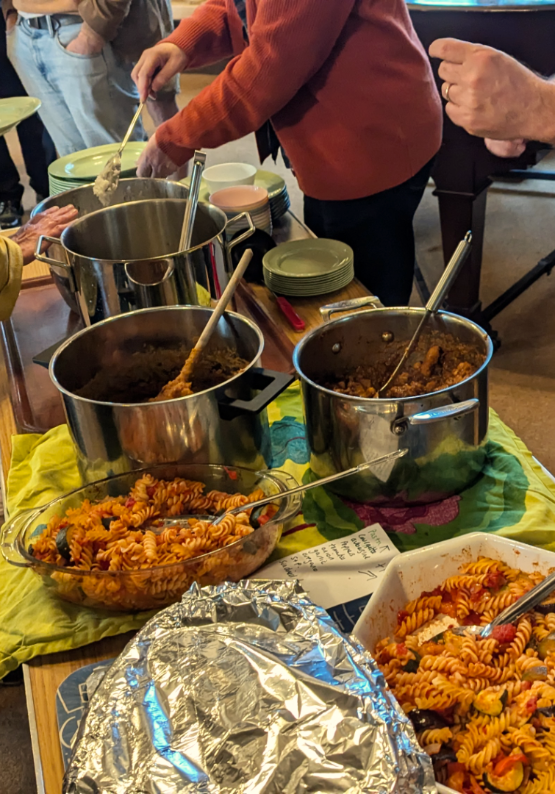What do you actually mean
by inclusive church?
Many people at Foundation have been hurt by, or had to leave, other churches because they were being discriminated against or actively bullied out because of who they are. We know how much pain that can cause, so we take being an inclusive church very seriously.
Foundation seeks to be a place where those previously marginalised can heal, and find a loving, supportive community, where they are affirmed and celebrated as they are.
There are many reasons someone might feel excluded, and they don’t always centre around having a marginalised identity. But we know that often, prejudice around those intersections can get in the way of someone receiving a proper, loving welcome.
So below are some of the ways the Foundation team try to ensure our services are as inclusive as they can be. We’re never going to get it right all the time - and we don’t expect others to either - as long as we’re all trying to understand each other, and everyone feels safe and respected.
Being an LGBTQ+ inclusive church in Bristol
Queer people are affirmed and celebrated in all areas of our community. Queer Foundationers take communion, get baptised and lead services. Our community minister is trans, we have a wonderful married Queer couple in our congregation, and are happy to hold name celebration services. So it’s safe to say there is no glass ceiling for LGBTQIA+ people at Foundation!
We have services on topics like Queer affirming theology or early LGBTQ+ Christians, and not just in Pride month. Our toilets are gender neutral single cubicles and you’re welcome to use whichever you like. We do not have any ‘single-gender’ events.
That said, we don’t expect everyone to have a doctorate in Queer theory. We are all learning, and we also leave space for people to still be figuring out where they’re at and who they are. We just ask people to be respectful, understanding, curious, and try to do right by those around them.
Being a fully wheelchair accessible inclusive church
You can’t include someone if they can’t get in the building. Our church is fully wheelchair accessible, with a fully accessible toilet and no stairs or steps. We don’t usually ask people to stand up or sit down during the service. The toilets are relatively close to the main hall, and anyone is welcome to get up, leave, use the toilet etc as many times as needed/wanted during the evening.
We have a hearing loop, and always make sure to use microphones so everyone can hear. We do have visual content on screens and optional service sheets, but most services would still be interesting and engaging without the visual content, and we’re happy to do visual descriptions if desired. You can read more about accessibility in our practical FAQs here.
Decolonial approaches: being an anti-racist inclusive church
Foundation is run by two sociologists, both of whom have studied decolonial approaches. We try to be anti-racist in all of our processes and content, incorporating liberation theology and ensuring that we listen and learn from Black, Brown, Asian and racialised thinkers and enjoy the work of global majority artists.
We do not tolerate racism, and hold services on issues relating to racism and colonialism. We challenge colonial interpretations of the scriptures and avoid Empire terminology. We reject traditional Christian ‘white saviour’ interpretations and try to avoid depictions of white Jesus! We are also blessed to have a loving connection to a family in the West Bank who we pray for and support, and work with the Amos Trust to support their work in Palestine.
Right now we are led by an all white team. We hope to change that. If you’re a person of colour looking for church leadership opportunities, please do come along and see if Foundation is the kind of community you would want to help lead.
Being a church inclusive of class differences and financial hardship
Class is an often hidden intersection that can be deeply alienating for those who feel left out of the status quo. Despite being in a wealthy area of Bristol, our congregation is made up of people at many different financial positions and tax brackets - some of us make big money, others are on benefits and receiving PIP. We hold sessions on income inequality and poverty, and we don’t have a “donation” section during the service. We’re regularly looking for different ways to support those facing income inequality in a way that doesn’t reproduce power dynamics.
We ensure that all of our activities are free, and we have free drinks after each service and free food at our Table services. All of our activities are held in the local area which has good bus links. We do have a WhatsApp group (which presumes access to a smart phone) but many regular attenders aren’t in it, and important information is always circulated through our mailer, read at services, or posted on the door!
Being a gender inclusive church
We recognise the patriarchy present in many traditional Christian approaches and actively criticise and reject the sexist notions inherent within it. In our services we use all pronouns for God, and ensure we are learning from thinkers, theologians, poets and artists that are women and marginalised genders. When choosing the music we listen to or art we enjoy we make sure to not un-duly privilege male artists and work actively to undo the historical gender imbalance. We practice feminist theology and explore the way gender effects people’s lives and experience.
We try to ensure everyone has an equal opportunity to lead and speak in discussions, and are cautious to not reproduce harmful gendered dynamics where possible. We are very careful with topics of sexual violence and violence against women, and use content warnings. We have had services on feminist & female theologians, and on the importance of expressing your feelings with a Captain from Talk Club. We do not do any binary gendered activities and have single cubicle toilets that are free for anyone to use.
Being a neurodivergent inclusive church
Our community minister has ADHD and is Autistic, so we’re pretty neurodivergent friendly! We have a hidden space available at the back where anyone can go at any time to get some space, knowing that they will not be interrupted or spoken to.
We do different activities during the service, so there’s not an expectation to sit still in your chair for an hour. Anyone can head to the back or go to the loo whenever they like, and stimming and fidget toys are welcome.
We let people know what will happen before the service starts, and always announce before we play music. We use soft lighting and candles (no big lights!).
Many of our community are neurodivergent and have a range of different skills, needs and expressions. We affirming the amazing things about being neurodivergent while acknowledging the disabling parts too. Many of us don’t do small talk, and that’s ok!

Got questions?
Check out our practical FAQs here. If you’d like to meet up first to check us out, please do get in touch and we can arrange that!
But you’re also very welcome to just rock up on Sunday at 7pm and see for yourself!





